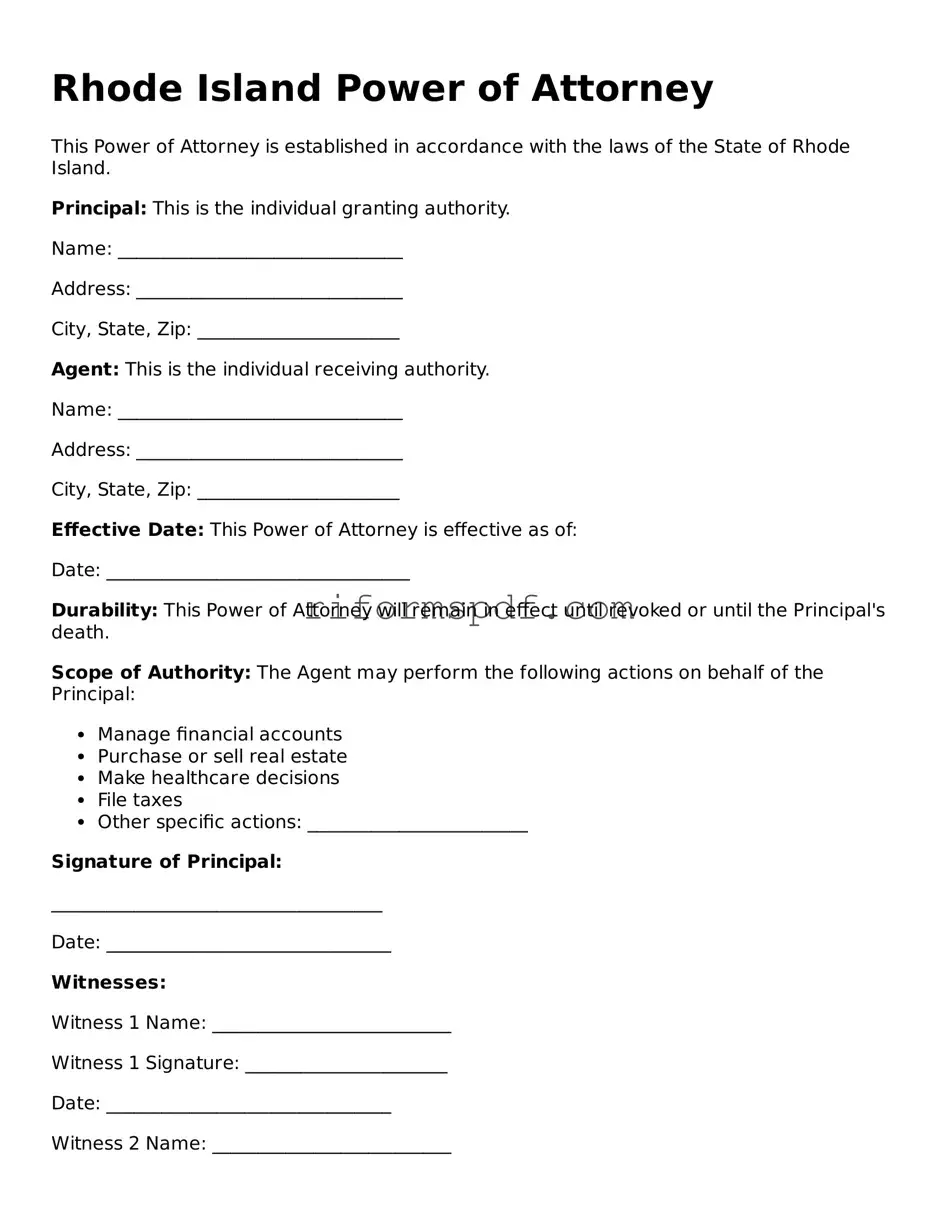Printable Power of Attorney Form for Rhode Island
A Power of Attorney form in Rhode Island is a legal document that allows one person to grant another person the authority to make decisions on their behalf. This can include financial matters, healthcare decisions, or other personal affairs. Understanding how this form works is crucial for anyone looking to ensure their wishes are respected when they are unable to make decisions themselves.
Launch Editor

Printable Power of Attorney Form for Rhode Island
Launch Editor
Finish the form now and be done
Edit Power of Attorney online and skip the paperwork.
Launch Editor
or
⇓ PDF Form
